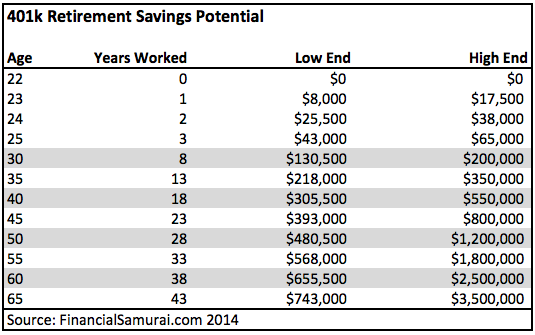U 401(K) Plans Certain Investment Options and Practices That May Restrict Withdrawals Not
Post on: 21 Июль, 2015 No Comment

Contact:
Office of Public Affairs
(202) 512-4800
401(k) plan sponsors are responsible for offering an array of appropriate investment options, and participants are responsible for directing their investments among those options. While participants expect to be able to switch investment options or withdraw money from their accounts, during the recent economic downturn, some 401(k) plan sponsors and participants found that they were restricted from doing so. GAO was asked to (1) identify some of the specific investments and practices that prevented plan sponsors and participants from accessing their 401(k) plan assets and (2) determine any changes the Department of Labor (Labor) could make to assist sponsors in understanding the challenges posed by the investments and practices that restricted withdrawals. To do this, GAO reviewed relevant federal laws and regulations and consulted with experts, federal officials, service providers, and plan sponsors.
Recommendations for Executive Action
Status. Open
Comments. According to the Department of Labor, because the SEC and CFTC have not completed their study as mandated by the Dodd-Frank Wall Street Reform and Consumer Protection Act, it is premature for the Department to assess whether further action is currently warranted. This determination will be made after the Department has the opportunity to examine the formal findings made by the SEC and CFTC.
Status. Open
Comments. The Department of Labor (DOL) disagrees with this recommendation. The Department reiterates its position from 2011, that without further study and review, the agency reported that it is not prepared to conclude that the regulations governing the disclosure of investment-related information to participants and beneficiaries must be amended to specifically address table value funds. DOL believes the current regulation specifically requires that information pertaining to investment risks, as well as investment strategies, be available to plan participants with respect to all investment alternatives offered under a participant-directed individual account plan, including stable value funds. Given the complexity of the issues involving stable value funds, GAO encourages DOL to initiate the study, review what it deems necessary, and amend its disclosure regulations as appropriate.
Status. Open
Comments. The Department of Labor reported that it will pursue further consideration of the recommendation prepared by the ERISA Advisory Council regarding stable value funds. It reported the same thing back in 2011. GAO believes that the guidance should be issued in a prudent but expeditious manner. Given that the ERISA Advisory Council report on stable value funds was posted in April 2010, without additional guidance or assistance, plan sponsors may remain unaware of the risks and challenges associated with this investment option. Furthermore, because Labor will be consulting with SEC and CFTC with regard to their study of stable value funds, Labor has a unique opportunity to assist participants in their understanding of the restrictions, limitations, and risks of investing in such funds. This effort would provide a great opportunity for DOL to assist plan sponsors and participants in building retirement security.
Status. Open
Comments. The Department of Labor (DOL) disagrees with this recommendation. DOL notes again, as it did back in 2011, that a plan sponsors decision to offer any investment option, which may engage in securities lending, is a decision that must be made in accordance with the fiduciary responsibility provisions of ERISA, based on all relevant facts and circumstances. Because each decision is made based on a number of variables, DOL believes it would not be possible for the agency to provide specific guidance on reasonable levels of fees and reasonable distributions of returns in connection with any particular securities lending cash collateral reinvestment. GAO recognizes the complexity of these transactions and the diligence that should be taken in developing such guidance. Nevertheless, key participants in securities lending transactions are already moving in the direction of providing additional guidance to plan sponsors. For example, some securities lending agents have already begun to make changes to their securities lending programs in response to plan sponsors who have requested more disclosure about securities lending and cash collateral pools and have also requested that their securities lending programs take on less risk. In addition, securities lending agents are beginning to standardize guidelines for cash collateral pool investments, changes which they think would provide participants with some protection from losses. These industry driven developments clearly suggest that not only is such guidance possible, but that it is in the best interest of plan sponsors for Labor to provide some assistance on this issue. Labor did not provide an update on its efforts in FY13 and FY14.

Status. Closed — Not Implemented
Comments. The Department of Labor reports that it has carefully considered GAOs recommendation and currently believes that no further amendment of PTE 2006-16 is required in light of a fiduciarys ongoing duty to assess the prudence, including the risk and return elements, of plan investments.
Status. Open
Comments. The Department of Labor (DOL) disagrees with this recommendation. As the Department last told us in 2011, it still believes further study and review is necessary before the Department could conclude that its regulations governing disclosure of investment related information to participants and beneficiaries should be amended to address securities lending issues related to investment funds available as investment options in participant-directed individual account plans. GAO strongly encourages DOL to initiate the study and review what it deems necessary, and, to amend its disclosure regulations as appropriate. Securities lending with cash collateral reinvestment arrangements can be very complex transactions. Labors participant disclosure regulations do not explicitly require plan sponsors to disclose information on the risks of securities lending with cash collateral reinvestment or withdrawal restrictions that can result from securities lending. GAO acknowledges that the current participant disclosure regulations require that information pertaining to investment risks and investment strategies be available to plan participants. However, these regulations require only disclosure of investment options, and not all practices utilized by those investment options — of which securities lending is one practice — and it is unclear how much or to what extent securities lending fees and risks will be discussed in these disclosures. Furthermore, DOL only requires that information be made available to plan participants, not disclosed, which would require plan participants to know what information they need to avail themselves of in order to understand the fees and risks of securities lending. Without better disclosures on securities lending with cash collateral, participants may continue to be unaware of the practice of cash collateral reinvestment and the risks it poses, as well as the potential for withdrawal restrictions resulting from such practices.
Status. Open
Comments. The Department of Labor noted GAOs comment that key participants in securities lending transactions are already moving in the direction of providing additional guidance to plan sponsors. The Department stated, as it had in 2011, that it will nonetheless consider this recommendation in light of those developments and its experience with securities lending practices.














